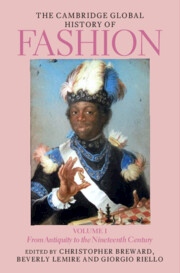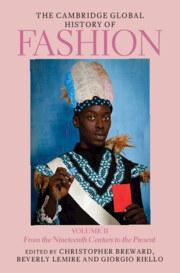2 results in The Cambridge History of Fashion

The Cambridge Global History of Fashion
- From Antiquity to the Nineteenth Century
-
- Published online:
- 04 August 2023
- Print publication:
- 17 August 2023

The Cambridge Global History of Fashion
- From the Nineteenth Century to the Present
-
- Published online:
- 04 August 2023
- Print publication:
- 17 August 2023

